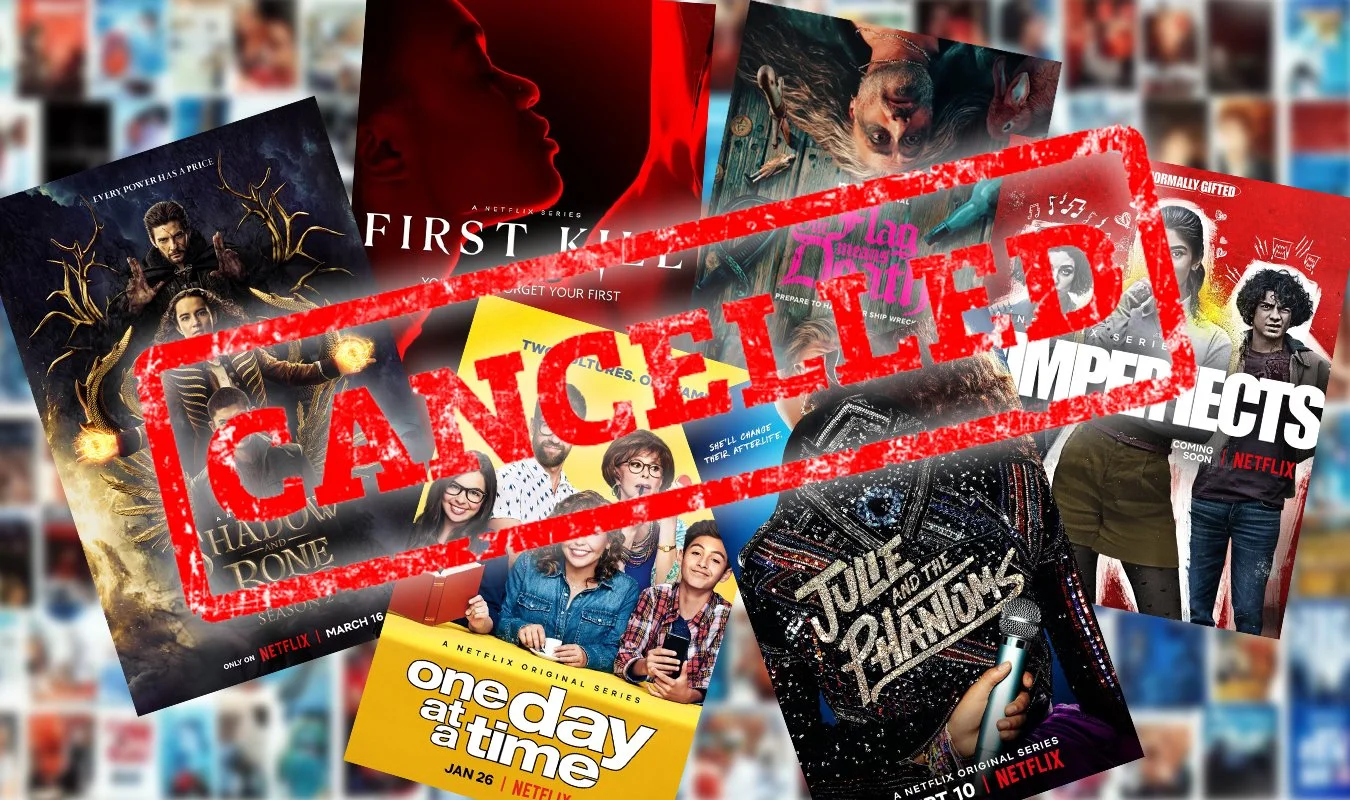Opinion | Canceled too soon
So many shows get canceled nowadays that it almost seems like a rite of passage for people to get fully invested in a show only to find out it was canceled. Photo collage by JACK SUNDBLAD, Staff Photographer
We all have one. We all have that show we stayed up all night to finish because we just could not look away. We all have that show we immediately looked up after we finished watching all the available seasons to find out when the next one was coming out. We all have that show we absolutely fell in love with only to find out it was canceled.
For me personally, it’s not just one show. And it genuinely feels like the list gets bigger and bigger every year. And every time this happens, I hope against hope that maybe this time, it will be different. Maybe this time, the outrage from the fans and the petitions and the millions of tweets will be enough to save the show. Every time, I’m wrong.
Emilia Cuevas Diaz, Opinions Editor
Back in 2019, there was a show called “One Day At A Time” that was canceled by Netflix, which personally came as a low blow to me due to the already lacking Latinx representation in the media. I was so happy when this show got picked up by POP TV for another season after an X, formerly Twitter, campaign with the #SaveODAAT. However, this victory was short-lived, as the show was once again canceled after 13 episodes on its new home.
After “One Day At A Time” came “Julie and the Phantoms” which, despite being very popular, was canceled after one season. The reason given for its cancellation was that it didn’t attract the correct audience, as its demographic skewed more toward teenagers and young adults than kids, which was the intended audience.
More recently, Netflix announced the cancellation of “Shadow and Bone”, closely followed by Max (previously known as HBO Max) announcing the cancellation of “Our Flag Means Death.” Both these shows are similar in that they got canceled after only two seasons despite being immensely popular among viewers. “Shadow and Bone” was the top 26th show on Netflix out of almost 20,000 shows included in the Netflix viewership report, while demand for “Our Flag Means Death” was 35.9 times the average of popular TV shows in the United States, placing it at 0.2% of shows with this level of demand.
Of course, both these shows have massive fan campaigns going on trying to save the shows, but historically, those campaigns rarely work.
What I do think is worth noting is that all of the shows I mentioned, along with many more, have something in common. Something that makes their cancellation so much more troubling. All of them are diverse shows.
“One Day At A Time” follows a Cuban family. “Julie and the Phantoms” has a black and Latina mixed race protagonist. “Shadow and Bone” has multiple characters among its main cast who are portrayed by people of color. And all the shows, including “Our Flag Means Death” feature one or multiple queer storylines.
This is part of an ongoing trend in Hollywood. Diverse shows seem to be getting canceled a lot more often than their cis, straight, white-centric counterparts.
Usually, the studios or streaming services quote low watch numbers for their decision to cancel a show, but if a show as popular as “Our Flag Means Death” can get canceled, how are viewers supposed to believe that how much they watch a show has any impact on whether the show gets canceled or not?
Besides, making decisions to cancel shows after one season based on viewership alone means that very few shows ever actually get a chance to find their audience. And I mean shows that are now considered some of the best never would never have had a chance to take off to begin with. Shows like “Parks and Recreation” and “The Office” initially had low ratings and would’ve been immediately canceled if they had come out in the streaming era.
Canceling shows so fast is starting to catch up with the streaming services and not in a good way. Netflix is already known for canceling shows, and in a time where streaming services are competing to keep every viewer, being known as the streaming service that cancels your favorite shows will not help retain that audience.
The bottom line is: TV shows need more than 10 episodes to find their audience, and diverse shows deserve more than one season to prove themselves worth it because representation is definitely worth it.


